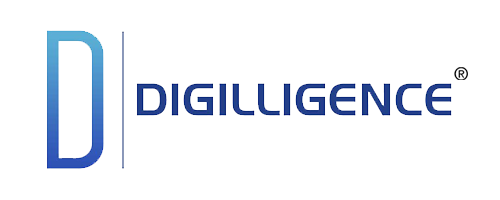Search Engine Optimization (SEO) has always evolved. From keyword stuffing in the 2000s to Google’s focus on E-A-T (Expertise, Authoritativeness, Trustworthiness), nothing about SEO stays the same for long. And here we are in 2025, where the biggest game-changer isn’t a new algorithm—it’s AI.
Now, don’t panic. AI in SEO doesn’t mean SEO is becoming robotic or that everything will be automated overnight. If anything, it’s made the process smarter and more focused on the end user. Let’s walk through what this shift really looks like—not from a tech manual, but from the lens of someone who works with SEO every day.
1. Keyword Research is Smarter (and Faster)
Anyone who’s spent hours juggling keyword tools knows how overwhelming it can get. High-volume keywords, low competition, search intent, long-tails—it’s a puzzle.
Rather than just throwing out lists of keywords, these tools analyze real-time search behavior, pull data from forums, social media, and search engines, and tell you exactly how and why people are searching.
2. Writing Content with AI as a Co-Pilot
A few years ago, you’d write a blog, hit publish, and cross your fingers. Now, with AI SEO strategies, you can get real-time suggestions while you’re writing.
Tools help compare your content with top-ranking pages and give insights on structure, keyword placement, tone, and even readability.
3. Predicting Performance Before You Publish
Ever spent days creating content only for it to flop?
AI is changing that. With AI for search rankings, tools can now forecast how a piece of content might perform based on your website’s history, current trends, and what’s already ranking. It’s not perfect, but it’s getting shockingly close.
This kind of forecasting lets teams prioritize what content to produce—and when. Should you do a video or a blog post? Is this topic seasonal? Would this piece perform better if broken into a series? AI helps answer these questions.
4. Voice and Visual Search Are the New Frontier
Let’s be honest: the way people search today is different. We’re not just typing anymore—we’re talking to Siri or snapping pictures on Google Lens.
AI in SEO makes it possible to adapt to these changes. For voice search, AI tools help identify the conversational tone people use. So instead of optimizing for “best budget phones,” you’d target “What are some good affordable phones right now?”
For visual search, AI helps ensure your images are optimized with the right alt tags, compression, and context so they show up when users search using images instead of words.
In short, AI helps you stay relevant as search itself evolves.
5. Real-Time Reaction to Algorithm Changes
Some updates are minor, but some shake up entire industries. And traditionally, marketers only noticed when traffic tanked.
Now? AI helps detect those shifts as they happen. AI-based SEO tools constantly monitor traffic patterns, keyword positions, and competitor data. If your rankings suddenly dip, these tools can flag it immediately, compare it to industry data, and even suggest likely causes.
6. Making the User Experience Better
Let’s be real—ranking on page one doesn’t mean much if people bounce off your page in 5 seconds. AI is now being used to dig deep into user behavior—how long people stay on your page, where they click, where they drop off, and more.
This helps you tweak your layout, update your CTAs, move important content higher up, or improve your loading speed. All of this impacts your search rankings, because Google is watching how users behave, too.
So yes, AI is helping with rankings—but not just by playing with keywords. It’s improving the actual experience your visitors get.
7. Automating the Boring Stuff (So You Can Focus on Strategy)
There’s a ton of grunt work in SEO: fixing broken links, updating meta descriptions, redirect chains, generating sitemaps, checking duplicate content. These tasks are essential, but they eat up a lot of time.
Thankfully, most of this is now handled by AI-based SEO tools. Whether you’re a solo blogger or a big agency, AI helps keep your site healthy without having to manually audit every page.
This doesn’t mean SEO professionals are out of a job. It just means we get to focus on the fun stuff: strategy, storytelling, and actually creating.
8. Technical SEO is No Longer Just for Developers
Once upon a time, technical SEO felt like another language. Schema markup? Canonical tags? Crawl budgets? For many marketers, it was intimidating.
But now, AI tools like Sitebulb, Screaming Frog (with AI features), and others break everything down. Not only do they flag issues, but they also explain what those issues mean and how to fix them—often with easy-to-follow guides.
Conclusion
A lot of people worry that AI is taking over SEO. But here’s the truth: AI isn’t replacing SEO experts—it’s making us better.
The people who are thriving in 2025 are those who see AI not as a threat, but as a tool. A good writer with great AI SEO strategies will always outperform a generic bot-generated article. A strategist who uses AI to spot trends early will always have the edge.
So if you’re in the SEO game, now’s the time to level up—not by fighting AI, but by learning how to use it.
